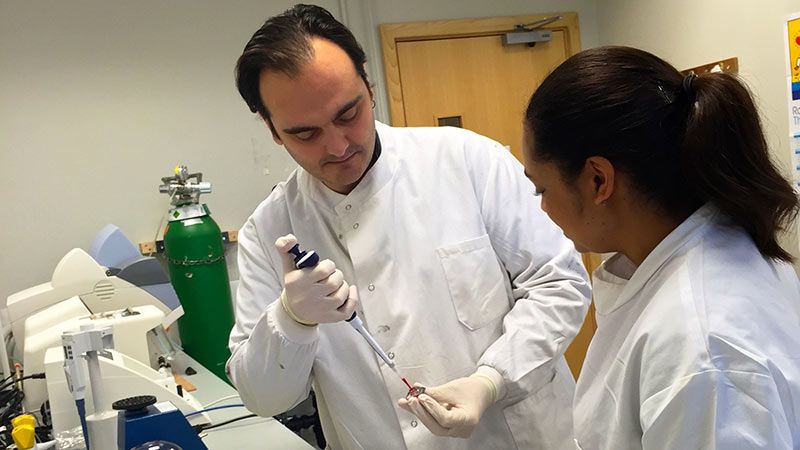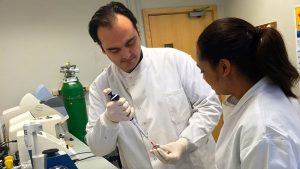Shaping the future: Our strategy for research and innovation in humanitarian response.

Shaping the future: Our strategy for research and innovation in humanitarian response.


 When the deadly Ebola virus began to spread in 2014, patients were tested by taking a blood sample. The problem with this method was that samples had to be taken by staff with specialist expertise and tested in a specialist lab, taking five to eight hours with only a handful of these facilities worldwide.
When the deadly Ebola virus began to spread in 2014, patients were tested by taking a blood sample. The problem with this method was that samples had to be taken by staff with specialist expertise and tested in a specialist lab, taking five to eight hours with only a handful of these facilities worldwide.
Through our R2HC programme, we funded Dr Sterghios Moschos (then at Westminster University, currently at Northumbria University) to carry out research into the possibility of testing and treating patients at the point of care, therefore reducing the spread of the disease. By working with a manufacturer of innovative diagnostic solutions, the EbolaCheck diagnostic platform was created.
EbolaCheck is mobile, requiring only a drop of blood to carry out the test (700 times less than previously needed), and only takes 70 minutes to complete. This means the test is safer to carry out and doesn’t require specialist staff – significantly reducing the cost of diagnosis.
Importantly the diagnostic tool is currently being piloted to test for other diseases!
Want to know more about how it works? See this ITV report and read their publication on the research and creation of the EbolaCheck platform.

 Please upgrade your browser
Please upgrade your browser
You are seeing this because you are using a browser that is not supported. The Elrha website is built using modern technology and standards. We recommend upgrading your browser with one of the following to properly view our website:
Windows MacPlease note that this is not an exhaustive list of browsers. We also do not intend to recommend a particular manufacturer's browser over another's; only to suggest upgrading to a browser version that is compliant with current standards to give you the best and most secure browsing experience.